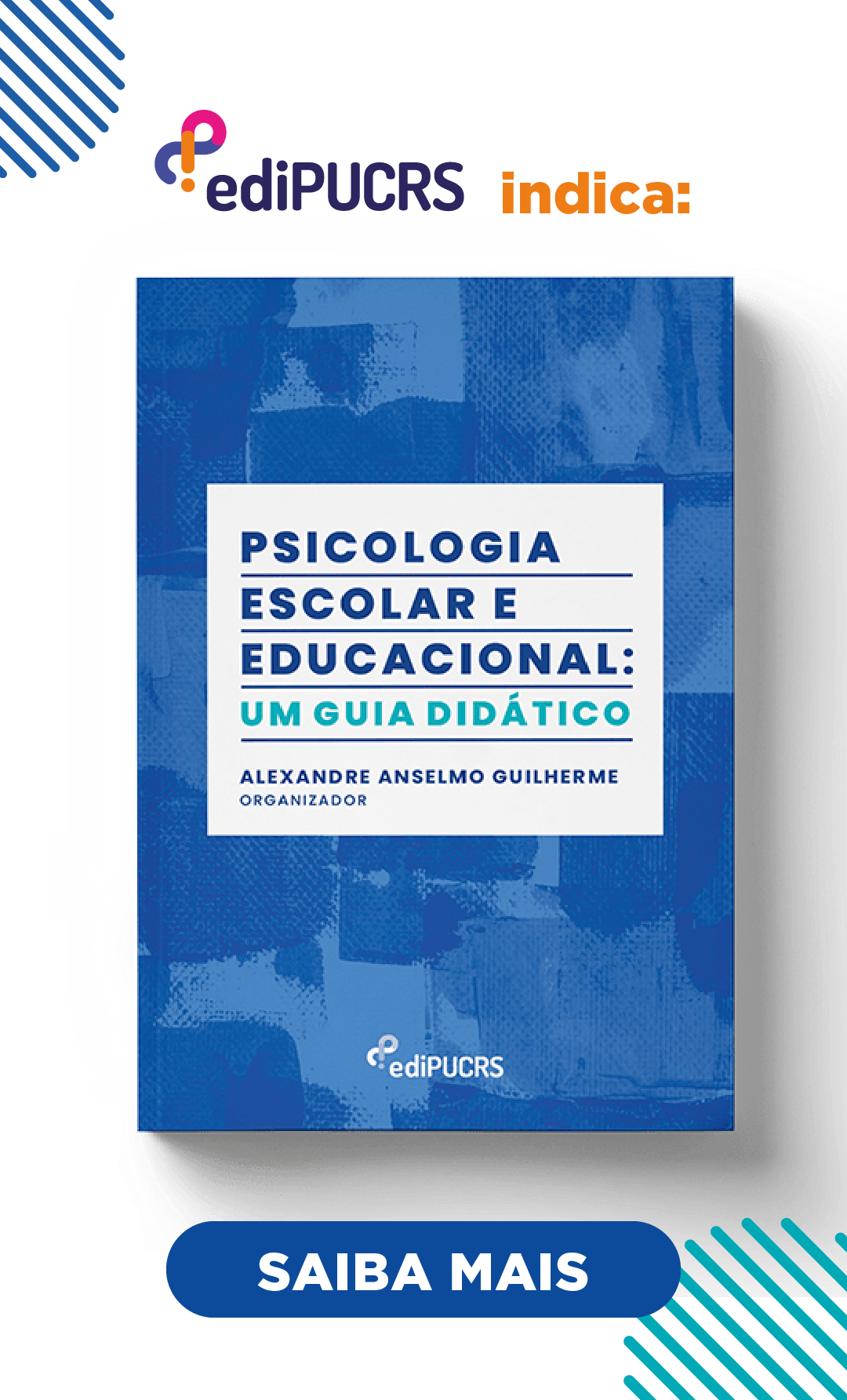School Counseling and Inclusion
Connections and routes in the development of an inclusive culture
DOI:
https://doi.org/10.15448/2763-5929.2021.1.40790Keywords:
School counseling, Inclusion, Inclusive cultureAbstract
This study presents a research of an end of specialization program in Inclusive Education of Pontifícia Universidade Católica. The purpose of this paper is to reflect on the importance of the school counselor in inclusive procedures of regular school system context intending to answer the following question: which are the needed connections and routes to the inclusion process in regular Primary Education, focused on the elementary levels of a private school in Porto Alegre, from the view of the School Counselor’s practice? For this, a qualitative research was undertaken through observations of the school routine in distinguished times and semi-structured interview questions to seven teachers and four special education students’ families. The results indicated possible approaches in partnership and paths required from this professional’s practice through the embracing of families and students, support provided to teachers and other school faculty’s members, purposes of continuing education to all school community as well as resources to provide equity in the teaching and learning processes in order to contribute to the
development of a broader inclusive culture in this school’s scenario. Interviewees’ responses revealed that it’s possible to think about routes and paths to be taken in connections and partnership demanded to implement this initiative. The teacher alone does not make a school inclusive. In this process everyone needs to be an actor and a protagonist so that the role of the School Counselor is essential considering the fact that he is the first contact of the student and the family at school.
Downloads
References
BARDIN, Laurence. Análise de conteúdo. São Paulo: Edições 70, 2011.
BATISTA, Cristina Abranches Mota. Atendimento Educacional Especializado para pessoas com deficiência mental. In: MANTOAN, Maria Teresa Eglér (org.). O desafio das diferenças nas escolas. Rio de Janeiro: Vozes, 2013. p. 121-129.
BEYER, Hugo Otto. O Projeto da Educação Inclusiva: Perspectivas e princípios de implementação. In: JESUS, Denise Meyrelles et al. (org.). Inclusão Práticas Pedagógicas e trajetórias de pesquisa. 3. ed. Porto Alegre: Mediação, 2011. p. 75-81.
CARVALHO, Rosita Edler. Escola Inclusiva: a reorganização do trabalho pedagógico. Porto Alegre: Mediação, 2014.
COLÉGIOS E UNIDADES SOCIAIS DA REDE MARISTA. Diretrizes da Educação Inclusiva na Educação Básica da Rede Marista/Colégios e Unidades Sociais da Rede Marista. Organização de Ana Rosimeri Araújo da Cunha; Simone Martins da Silva. Porto Alegre: Centro Marista de Comunicação, 2018.
CRESWELL, John W. Investigação qualitativa e projeto de pesquisa: escolhendo entre cinco abordagens. 3. ed. Porto Alegre: Penso, 2014.
GIACAGLIA, Lia Renata Angelini; PENTEADO, Wilma Millan Alves. Orientação Educacional na Prática: princípios, técnicas e instrumentos. São Paulo: Thomson Learning, 2006.
MANUAL diagnóstico e estatístico de transtornos mentais: DSM-5. 5. ed. Tradução de Maria Inês Corrêa Nascimento et al.; revisão técnica de Aristides Volpato Cordioli et al. Porto Alegre: Artmed, 2014. Disponível em: http://www.clinicajorgejaber.com.br/2015/estudo_supervisionado/dsm.pdf. Acesso em: 24 jul. 2020.
ROSA, Carlos Eduardo. O DSM-5 e a CID-10: uma questão de classe? In: ROSA, Carlos Eduardo. Carlos Eduardo Rosa: Psiquiatria e Psicoterapia. [S. l.], 26 jan. 2015. Disponível em: http://www.carloseduardorosa.com.br/o-dsm-5-e-a-cid-10-uma-questao-de-classe. Acesso em: 25 maio 2017.
ROTTA, Newra Tellechea; OHLWEILER, Ligia; RIESGO, Rudimar dos Santos (org.). Transtornos da aprendizagem: uma abordagem neurobiológica e multidisciplinar. 2. ed. Porto Alegre: Artmed, 2016.
SILVA, Karla Wunder; BINS, Katiuscha Lara Genro. 25 anos de uma escola que se (re)constrói no tempo: funcionamento atual. In: SILVA, Karla Wunder; BINS, Katiuscha Lara Genro (org.). Tessituras do fazer pedagógico junto a alunos com Transtorno do Espectro Autista. Porto Alegre: Secretaria Municipal de Educação, 2016. p. 43-49.
UNIÃO MARISTA DO BRASIL. Projeto Educativo do Brasil Marista: Nosso jeito de conceber a Educação Básica. Brasília, DF: Umbrasil, 2010.
Downloads
Published
How to Cite
Issue
Section
License
Copyright (c) 2021 Caderno Marista de Educação

This work is licensed under a Creative Commons Attribution 4.0 International License.
A submissão de originais para este periódico implica na transferência, pelos autores, dos direitos de publicação impressa e digital. Os direitos autorais para os artigos publicados são do autor, com direitos do periódico sobre a primeira publicação. Os autores somente poderão utilizar os mesmos resultados em outras publicações indicando claramente este periódico como o meio da publicação original. Em virtude de sermos um periódico de acesso aberto, permite-se o uso gratuito dos artigos em aplicações educacionais e científicas, desde que citada a fonte (por favor, veja a Licença Creative Commons no rodapé desta página).




